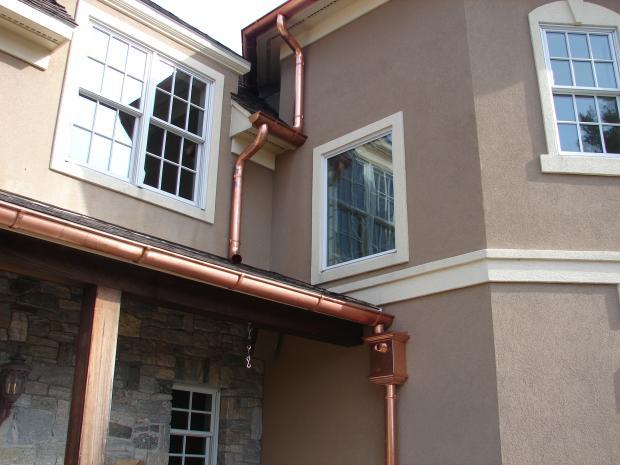
Rain gutters are one of your home’s most important protections against the elements. Gathering the runoff from your roof caused by rain and melting snow and diverting it away from your siding and foundation to where it will do the least amount of harm. Because rain gutters are such an important aspect in maintaining the integrity of any home, it’s important that you make an educated and informed decision as you look at available styles and materials so that you can make the best choice for your home and budget.
Below is a list of the most common gutter materials, as well as their benefits and drawbacks, so that you can move ahead with your next rain gutter purchase with confidence.
1. Vinyl Gutters
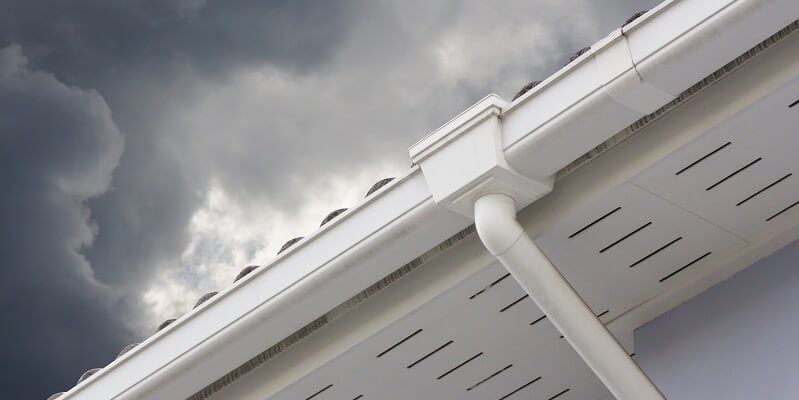
Vinyl gutters have quickly become a homeowner favorite because of their ease of installation, the fact that they never rust or corrode, and due to their cheap purchase price. Because they are so lightweight and sections easily snap together, they are very easy for the do-it-yourselfer to manage and install.
Furthermore, when used in milder climates they function just as well other materials, especially when installed correctly. Poor installation can result in sagging sections, however, and vinyl gutters do have a reputation for growing brittle and cracking over time and in extreme cold. These home gutters are a good solution if you’re in need of new gutters while on a tight budget.
2. Aluminum Gutters
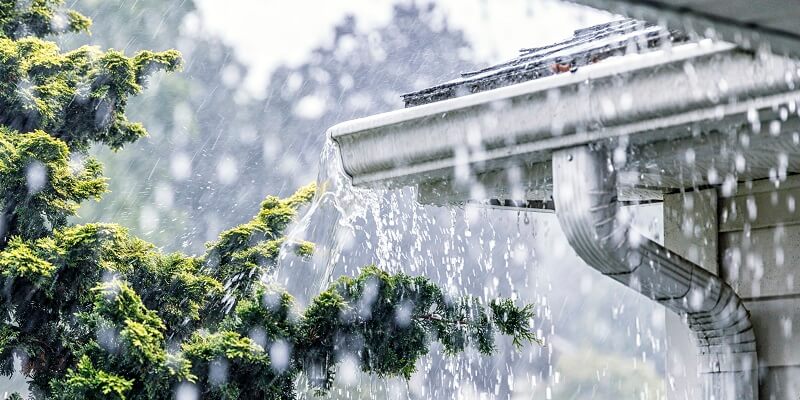
Next on the list of cost efficiency are aluminum rain gutters. Like vinyl gutters, aluminum house gutters also have the advantages of being lightweight, rust-proof, and relatively easy to work with. Unlike vinyl, however, they are weather-resistant across the board and maintain their integrity in cold climates. Add to that the fact that they hold paint well (again something that vinyl gutters can’t claim) and can be manufactured in seamless models (we’ll talk more about this later), and it’s clear why many homeowners and gutter contractors prefer aluminum home gutters over all other materials.
Their only drawback is that they aren’t structurally as strong as many other materials, they will dent, and they can be misshapen by poorly placed ladders and the like. This can be mitigated to some extent by purchasing gutters made of primary aluminum, which is thicker and of a higher quality compared to secondary aluminum products made mostly of recycled materials.
3. Steel and Copper Gutters
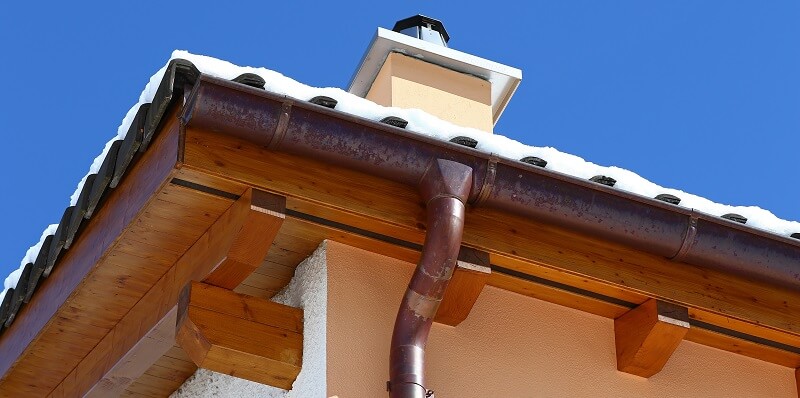
As with aluminum gutter products, steel gutters come in a few different varieties. Galvanized steel rain gutters are by the far most popular as they are very competitive cost-wise and are sturdier than their aluminum counterparts when it comes to damage incurred by falling branches and ladders. The main drawback of galvanized steel is the rust factor. Eventually rust will take its toll with this brand of steel and they will rust through, though with proper maintenance they can still last for a very long time.
Ready to start your gutters?
Find Pros4. Stainless Steel
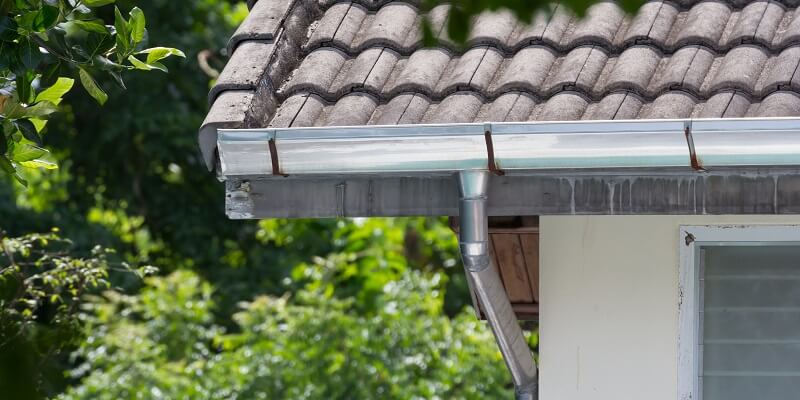
These puppies are virtually indestructible, shine for years on end, won’t rust, and are pretty well accepted as one of, if not the, strongest materials in the industry. The one drawback is price. These gutters will run two-to-four times as much as gutters manufactured from lesser materials, so be prepared to shell out a few more peanuts if you go this route. Finally, copper gutters are perhaps the most beautiful rain gutters on the market, and like stainless steel are virtually indestructible. The only barrier here is price as well, as copper would easily win first place if there was a “most expensive gutter material” category at the county fair.
5. Wood Gutters
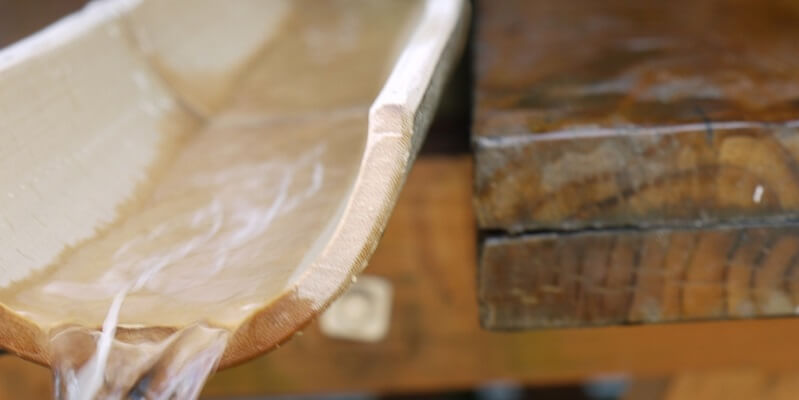
Wood gutters used to be the norm a hundred years past, though with the advent of cheaper, mass-produced materials that are more weather resistant, this home gutter material has mostly dropped out of favor. Wood rain gutters made of cedar, redwood, and fir are still available however, and are most often used in renovations of older, historic houses, where staying true to the original building materials takes precedence over longevity. Be prepared to spend a bundle as well if you choose this classic house gutter material.
Sectional vs. Seamless
The final thing to consider is whether you want sectional versus seamless gutters. Most materials are only available in sections that are joined and fastened together as they are installed. Aluminum gutters, however, are now available in seamless varieties, custom made to fit your home out of single, long sheets of metal. The advantages here are obvious. The most common place a gutter fails after years of wear is at the joints and seams. A seamless gutter will never have this problem, making it a popular choice for those who can afford the extra cost.
Whether you’re looking for maximum savings or are more concerned with stunning looks, there’s a rain gutter out there to meet your specific house gutter needs. Talk to a certified gutter installer or gutter contractor in order to find out which material is going to work best for your home and your budget, and to ensure that your gutters are installed correctly so that you won’t have to worry about them anytime in the foreseeable future.
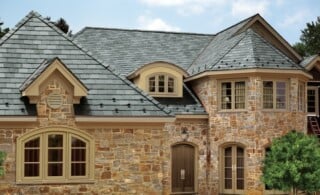 Best Asphalt Shingles – A Buyer’s Guide
Best Asphalt Shingles – A Buyer’s Guide 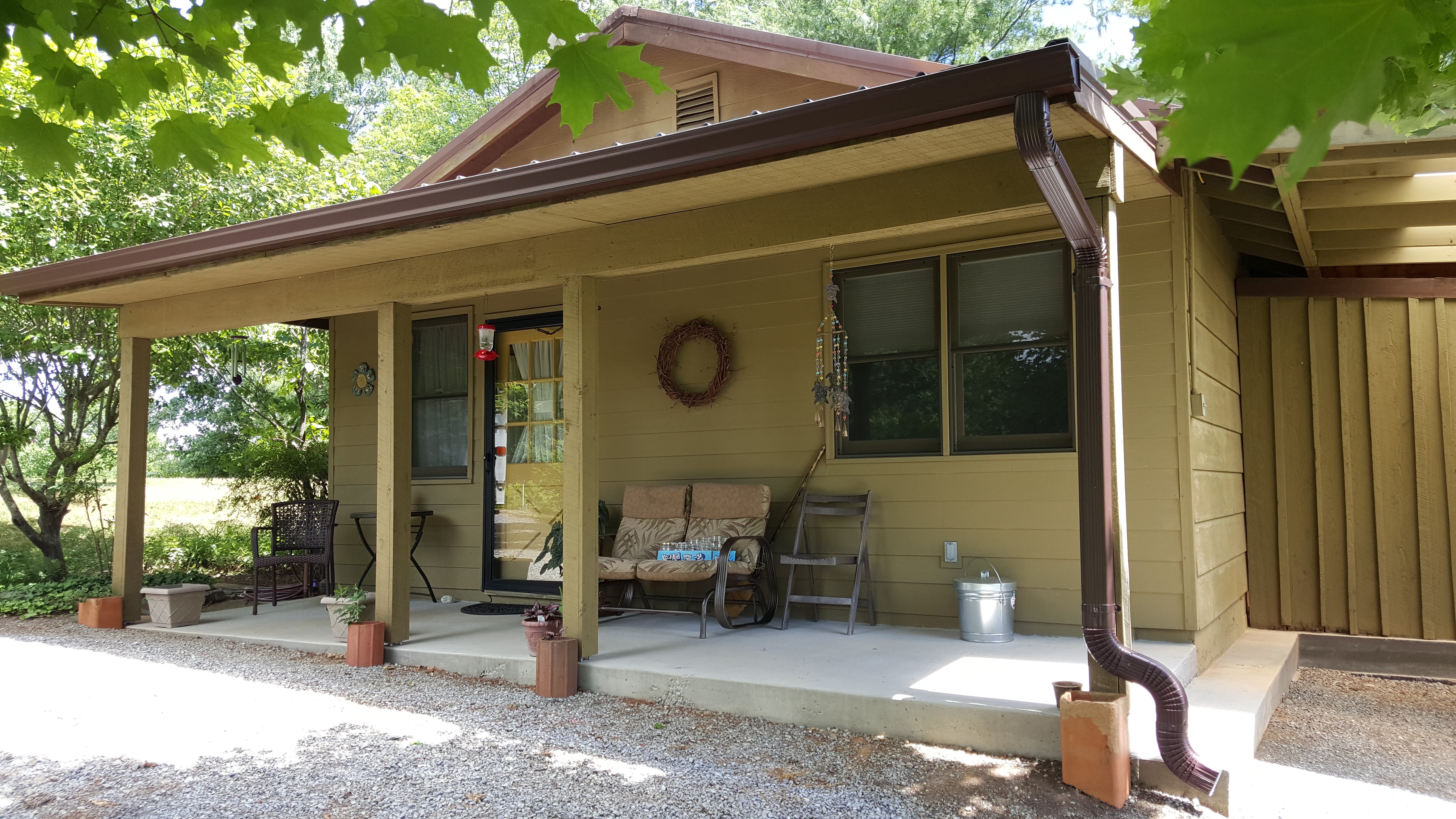 Vinyl Gutters – Are They Right For You?
Vinyl Gutters – Are They Right For You? 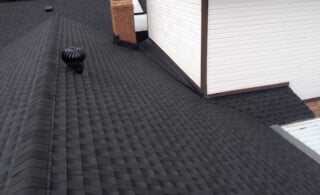 Asphalt Shingles: Cost Effective Roofing
Asphalt Shingles: Cost Effective Roofing 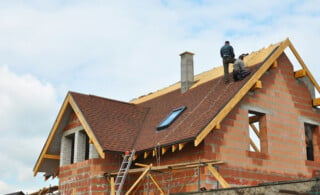 Are Dormers Right for Your Home? A Look at the Pros and Cons
Are Dormers Right for Your Home? A Look at the Pros and Cons 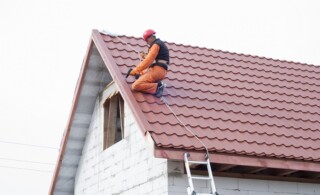 How to Find & Fix a Leaking Roof
How to Find & Fix a Leaking Roof 

Stainless steel is way to go, regardless of price. It will last a long long time.